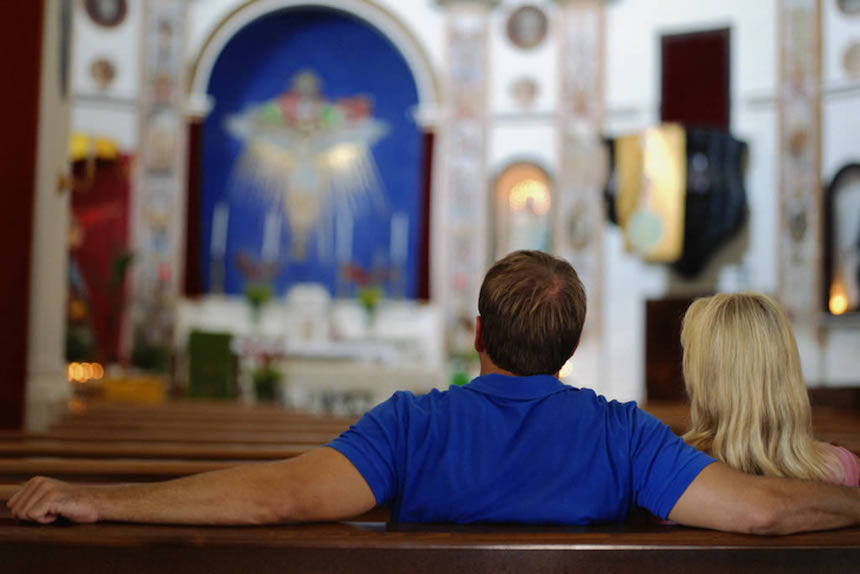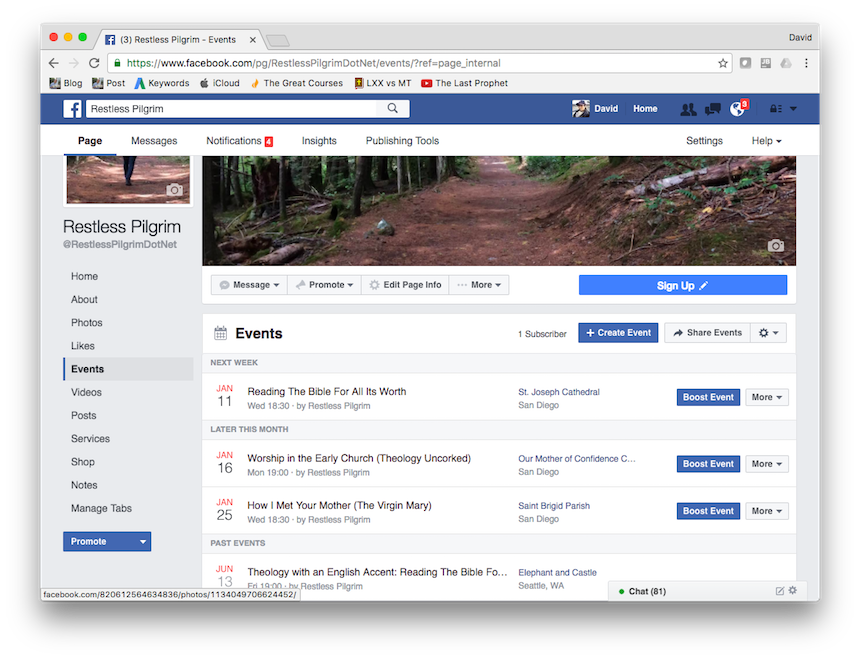 Today is the concluding part of yesterday’s article, “Should I date a non-Catholic?”. In the previous post, I explained that this is a question I’ve heard often in Catholic circles and I shared a little bit about my own experience of dating non-Catholics. We spoke about the reason for dating and concluded that its purpose is ultimately marriage. Therefore, when we speak about dating a non-Catholic, we should really talk about marrying a non-Catholic, since this is ultimately the point of dating someone.
Today is the concluding part of yesterday’s article, “Should I date a non-Catholic?”. In the previous post, I explained that this is a question I’ve heard often in Catholic circles and I shared a little bit about my own experience of dating non-Catholics. We spoke about the reason for dating and concluded that its purpose is ultimately marriage. Therefore, when we speak about dating a non-Catholic, we should really talk about marrying a non-Catholic, since this is ultimately the point of dating someone.
We ended the previous post by looking at what the Catechism has to say on the subject of marriages to non-Catholics. We read that the Catholic Church does allow marriages to non-Catholics, but cautions Her children not to underestimate the difficulties involved in this kind of union. In today’s concluding post, I would like to discuss in more detail the potential areas of difficulty alluded to by the Catechism and then offer some concluding thoughts.
Practical Considerations
Since this two-part series focuses primarily on dating a Protestant, it is good to emphasize how much we share with our Protestant brethren. A couple composed of a Catholic and Protestant will have much in common, as did I with my former girlfriend whom I mentioned in yesterday’s post.
Having said that, when discussing this subject with friends, I find it helpful to ask questions about three areas of potential conflict:
1. The Wedding
Who will marry you? Will it be a Catholic priest or will it be another kind of minister? Will you get married in a Catholic Church or will you seek dispensation to marry in some other denomination’s building? How will your respective families react to this?
Who will teach your marriage preparation classes? What will be the content of that formation? Not all views of marriage are the same. For example, the Catholic Church’s teaching is that marriage is indissoluble. Will this be taught during your class?
2. Religious Practice
Where, as a couple, will you go to church? Catholics are required to attend Mass each week. In an effort to accommodate this, will you go to a Catholic parish together?
Or, will you attempt to go to both a Catholic Mass and a Protestant service each week? I speak from experience when I say that this can quickly become exhausting!
Or, will you fulfill your obligation by going to the Saturday Vigil Mass alone? Are you okay with that?
Is the subject of religion taboo with your potential spouse? Is it a regular source of conflict? Are you supportive of one another’s religious practices? Are you leading each other towards holiness?
When spiritual issues arise, to whom will you turn as a couple?
3. Children and family life
Will your potential spouse be open to life, or will he want to contracept? If it is suspected that your unborn child has Down Syndrome, for example, will he urge you to abort the child?
When seeking permission to marry a non-Catholic, you and your fiancé will be told that you are required by the Church to make sure that any offspring from the marriage are to be baptized and brought up in the Catholic Church. Will you and your spouse do this? Or will your children be dedicated, rather than baptized? Will you teach them the Catholic Faith in its fullness, or will they be taught the lowest common denominator between your respective faiths? How will you respond when your children ask questions about the differences between the teaching of the Catholic Church and your spouse’s denomination?
An ex-girlfriend of mine had an interesting take on the subject of children. She would ask herself if she felt confident, in the unfortunate case of her early death, whether her husband would raise her children as she would desire.
Read more

 Today is the concluding part of
Today is the concluding part of 




